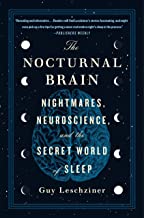Parasomnia
A parasomnia is a sleep disorder that causes abnormal behavior while sleeping. The behavior can occur during any stage of sleep, including the transition from wakefulness to sleeping and vice versa. If you have a parasomnia, you might move around, talk, or do unusual things during sleep.
Cluster Number:
Wiki Number: PW152
Diagnosis: Parasomnia
US Patients:
World Patients:
Sex Ratio: 90%M
Age Onset: 50+ Age
Brain Area:
Symptoms: partial arousals before, during and after sleeping;10 core categories:physical partial-arousal during deep-sleep-stages 3 &4,
Progression: confusion, sex acts-still sleeping, night terrors, sleep-walking, eating, nightmares, sleep-talking, hallucinations
Causes: 80% unknown, sleep deprivation may be a factor; problem sometimes resolves itself over time
Medications: melatonin and clonazepam
Therapies: relaxation, biofeedback, hypnosis, stress reduction may help temporarily
Youtube Video: Meet the Experts: Sleep Disorders Explained
Amazon or Library Book: Parasomnia
Click the book to link or order from Amazon.

